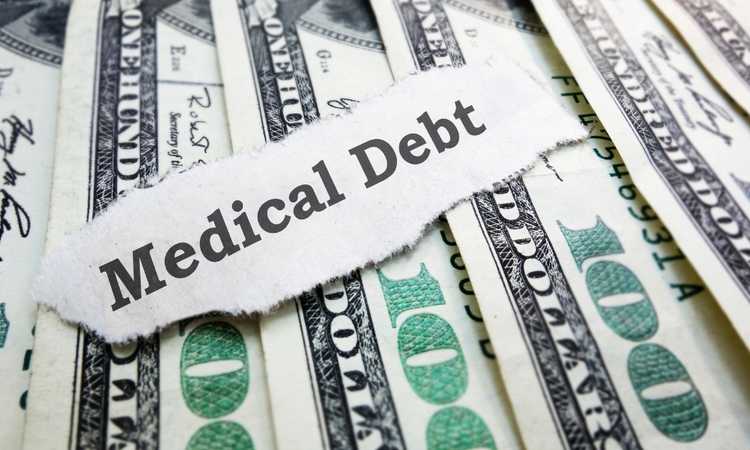How does medical debt affect your FICO score? If you’ve ever been to the doctor or had to go to the hospital, you know that medical bills can be expensive. And if you’re like most people, you probably don’t have enough money set aside to cover those costs.
So what do you do? You might put the bill on a credit card and worry about it later. But that decision could end up costing you down the road.
Medical debt is one of the biggest factors that affects your FICO score, so if you’re trying to improve your credit, you need to pay attention to your medical expenses. Keep reading for more information on how medical debt affects your credit score and what you can do to keep it from impacting your rating.
1. What is a FICO score and how is it calculated?
A FICO score is a three-digit number that lenders use to assess your creditworthiness. The score is based on your credit history, including factors such as your payment history, credit utilization, and the types of credit you have. FICO scores range from 300 to 850, and the higher your score, the better your chances of getting approved for a loan or credit card.
To calculate your FICO score, lenders will look at your credit report from the three major credit bureaus: Equifax, Experian, and TransUnion. They’ll then assign weights to different factors in your report, such as whether you pay your bills on time or how much debt you have relative to your credit limit.
Based on these weights, they’ll come up with a final score that gives them an idea of how likely you are to repay a loan. If you’re looking to get a loan or credit card, it’s a good idea to check your FICO score beforehand so that you know where you stand.
There are a few different ways to do this, such as by requesting a free credit report from AnnualCreditReport.com or by signing up for a free trial of a credit monitoring service. By understanding your FICO score, you can better prepare for the application process and improve your chances of getting approved. For more tips, read this recent article on how you can get a copy of your credit report for free.

2. How does medical debt affect your credit score and borrowing ability?
Medical debt can have a major impact on your credit score and borrowing ability. When you have unpaid medical bills, your creditors may report the debt to the credit bureaus. This can lead to a decrease in your credit score, which can make it difficult to get approved for new loans or lines of credit.
Additionally, medical debt may be considered a “negative mark” by potential lenders, which could result in higher interest rates or even denial of your loan application.
If you’re already struggling with medical debt, consider seeking help from a nonprofit credit counseling or financial coaching organization.
These organizations can provide you with budgeting and Debt management assistance so that you can get your finances back on track. Medical debt doesn’t have to control your life – there are options available to help you get back on your feet.
3. What can you do to improve your FICO score if you have medical debt collectors calling you every day?
There are a few things you can do to improve your FICO score if you have medical debt collectors calling you every day.
First, make sure that you’re on the National Do Not Call Registry. This will stop most, if not all, of the calls from debt collectors.
Second, keep track of all the calls you receive, including the date and time of the call, the name and number of the caller, and a brief summary of the conversation. This will help you document any harassment or illegal behavior on the part of the debt collector.
Finally, consider seeking legal assistance to help you deal with the debt collectors. An attorney can help you negotiate a payment plan or dispute the debt altogether.
With a little effort, you can improve your FICO score and put an end to the harassing phone calls.
4. Can you negotiate with medical debt collectors or set up a payment plan?
If you’re struggling to pay off medical debt, you may be wondering if it’s possible to negotiate with medical debt collectors. The good news is that it is possible to negotiate with medical debt collectors.
However, it’s important to keep in mind that each situation is unique and there is no one-size-fits-all approach to Negotiating with medical debt collectors. Here are a few tips to help you get started:
1. Do your research
It’s important to know your rights when it comes to dealing with medical debt collectors. The Fair Debt Collection Practices Act (FDCPA) outlines what debt collectors can and cannot do when attempting to collect a debt.
Familiarizing yourself with the Fair Debt Collection Practices Act (FDCPA) will give you a better understanding of your rights and help you determine if a collector is acting inappropriately.
2. Know what you can afford
Before you start negotiations, it’s important to have a clear understanding of your financial situation and what you can realistically afford to pay. This will help you set reasonable expectations for the negotiation process.
3. Be prepared to compromise
If you’re hoping to reduce the amount of money you owe, be prepared to compromise, such as agreeing to make regular payments over time or making a lump sum payment. Remember that the goal is to come up with an arrangement that works for both parties involved.
4. Get everything in writing
Once you’ve reached an agreement, be sure to get the terms of the agreement in writing before making any payments. This will protect you in the event that the collector attempts to change the terms of the agreement or tries to collect more money than what was agreed upon.
Dealing with medical debt can be stressful, but it’s important to remember that there are options available to help you resolve the debt. By following these tips, you’ll be in a better position to successfully negotiate with medical debt collectors and come up with a plan that works for both parties involved.

5. Loan forgiveness programs for medical education debt
If you find yourself struggling to make payments on your medical debt, you may be wondering if there are any options for bankruptcy or loan consolidation/forgiveness programs. Here is a brief overview of some of the programs that may be available to you:
Government Programs for Medical Debt
-The government offers a few different loan consolidation and forgiveness programs for medical school debt. You may be able to consolidate your loans through the Federal Direct Consolidation Loan program, or you may be eligible for partial or full loan forgiveness through the Public Service Loan Forgiveness program.
6. Loan consolidation programs for medical debt
Private Lenders for Medical Debt
-There are also several private lenders who offer consolidation and forgiveness programs for medical debt. Some of these programs may be income-based, so be sure to check with the lender to see if you qualify.
7. Bankruptcy for medical debt
Last Resort for Medical Debt – Bankruptcy
-If you are unable to consolidate or forgive your medical debt, you may still be able to file for bankruptcy. However, this is a drastic measure and should only be considered as a last resort.
Be sure to do your research and speak with a financial advisor before making any decisions about consolidating or forgiving your medical debt, or filing for bankruptcy.
Next Steps
To sum it up, unpaid medical bills can have a significant impact on your credit score. The best way to avoid this is to make sure you are proactive about paying your medical bills and communicating with your health care providers about any financial assistance you may need.
If you do find yourself struggling to pay a medical bill, don’t hesitate to reach out for help. There are many organizations and resources available that can assist you in getting back on track financially.
Finally, keep in mind that it is important to maintain a good credit score, as it can affect everything from your ability to get a mortgage or car loan to the interest rates you qualify for.

Erika Finn, founder of Credit Help, is an attorney who graduated from law school (JD) at University of California, Berkeley and is a member of the California Bar Association. She was a member and editor of the California Law Review and won the Prosser Prize for Legal Accounting. She holds a Master’s Degree (MFA) from the University of Southern California (USC) and a Bachelor’s degree (BA) from Indiana University- Bloomington with highest distinction.
Credit Help believes that everyone should have access to helpful, free information about how to raise their credit rating.
Articles on Credit Help are not legal advice or financial advice.